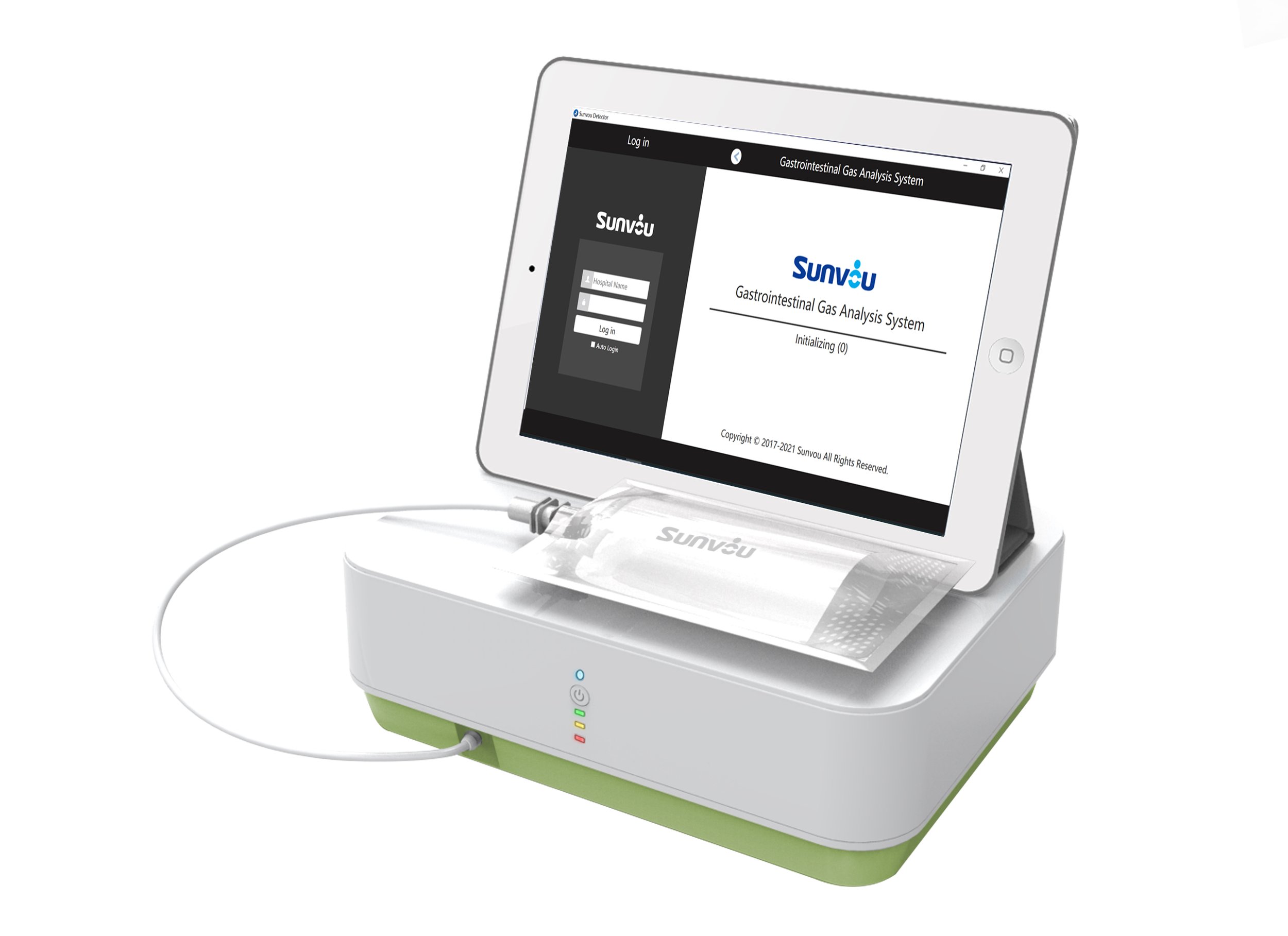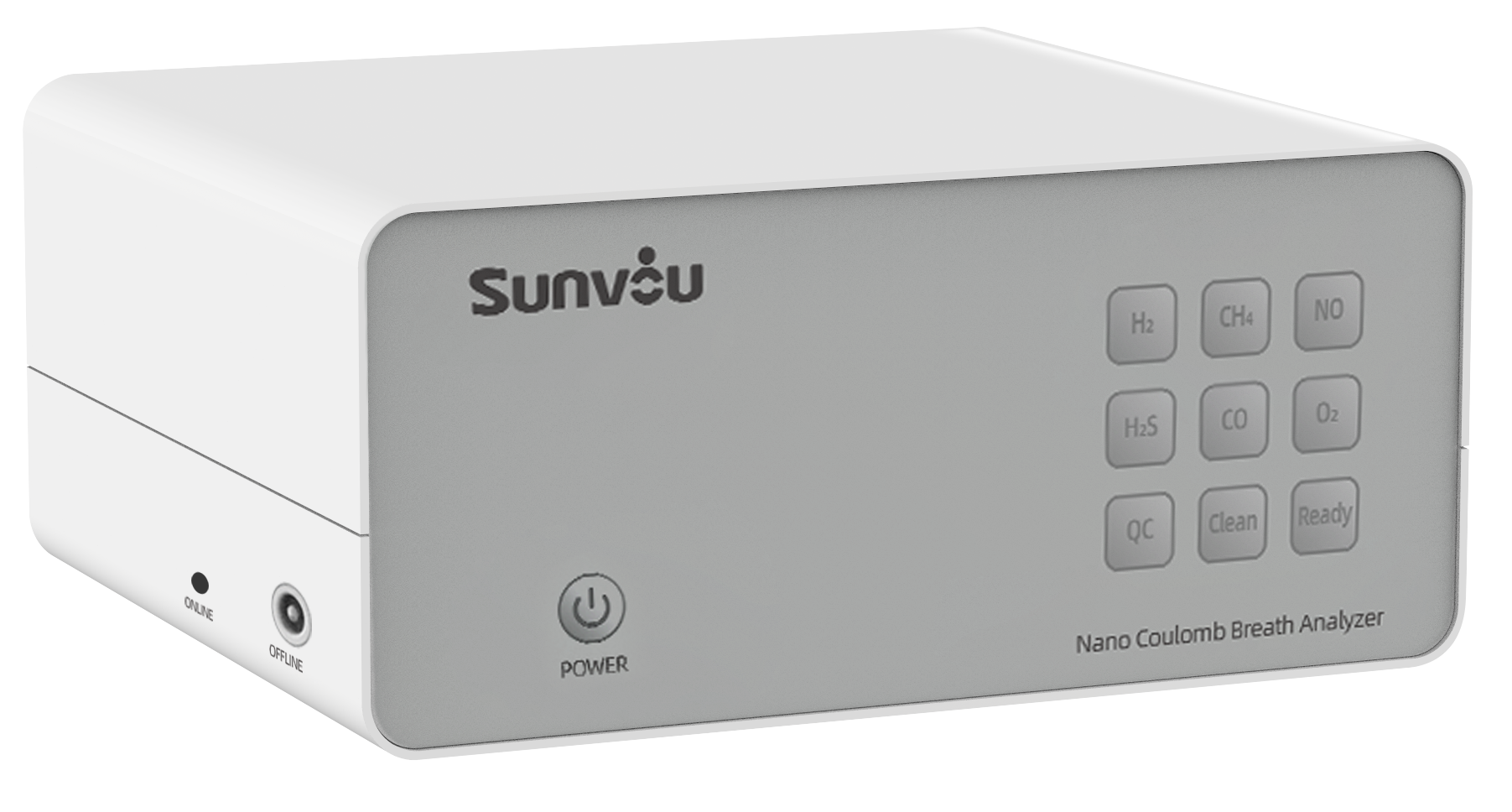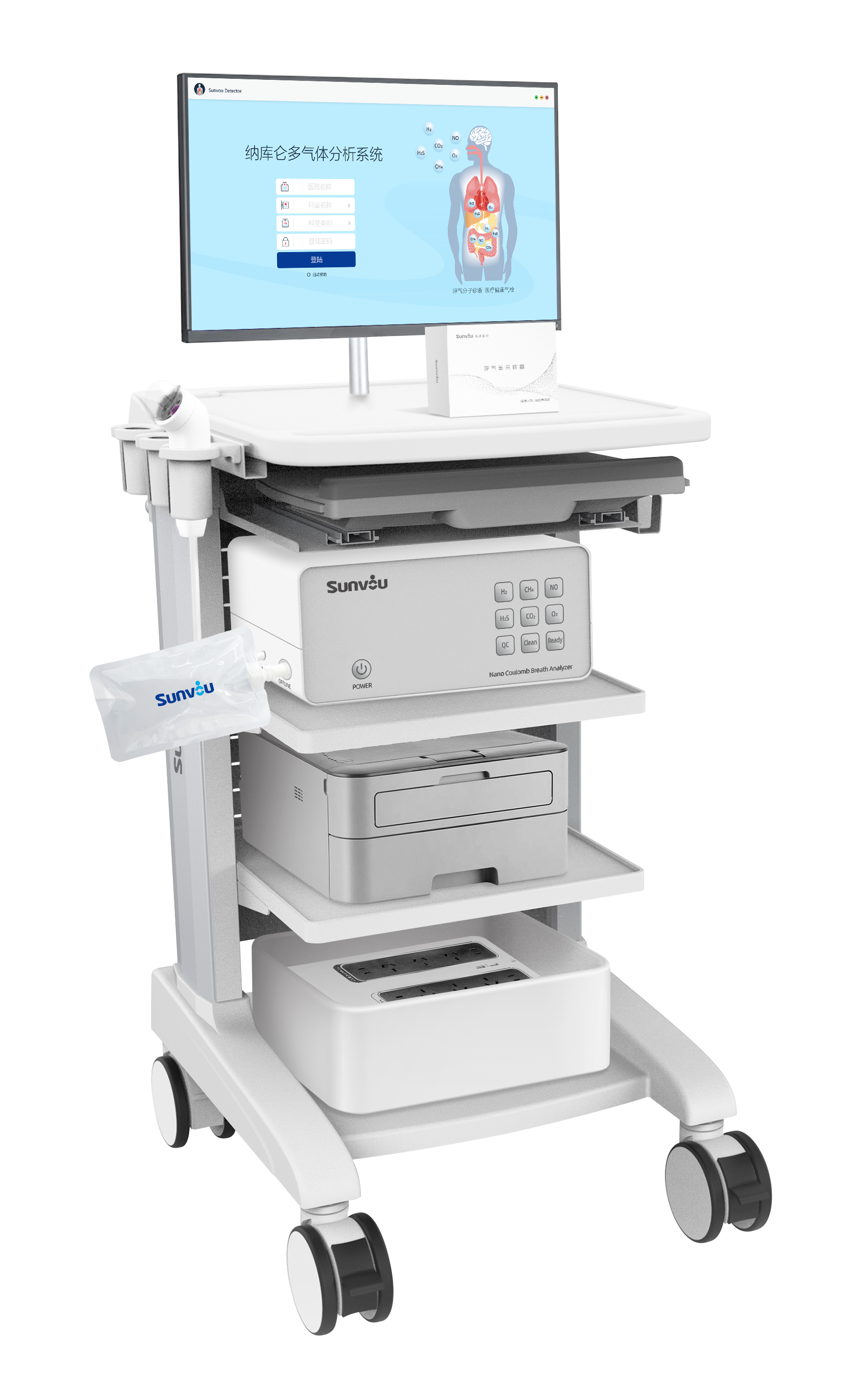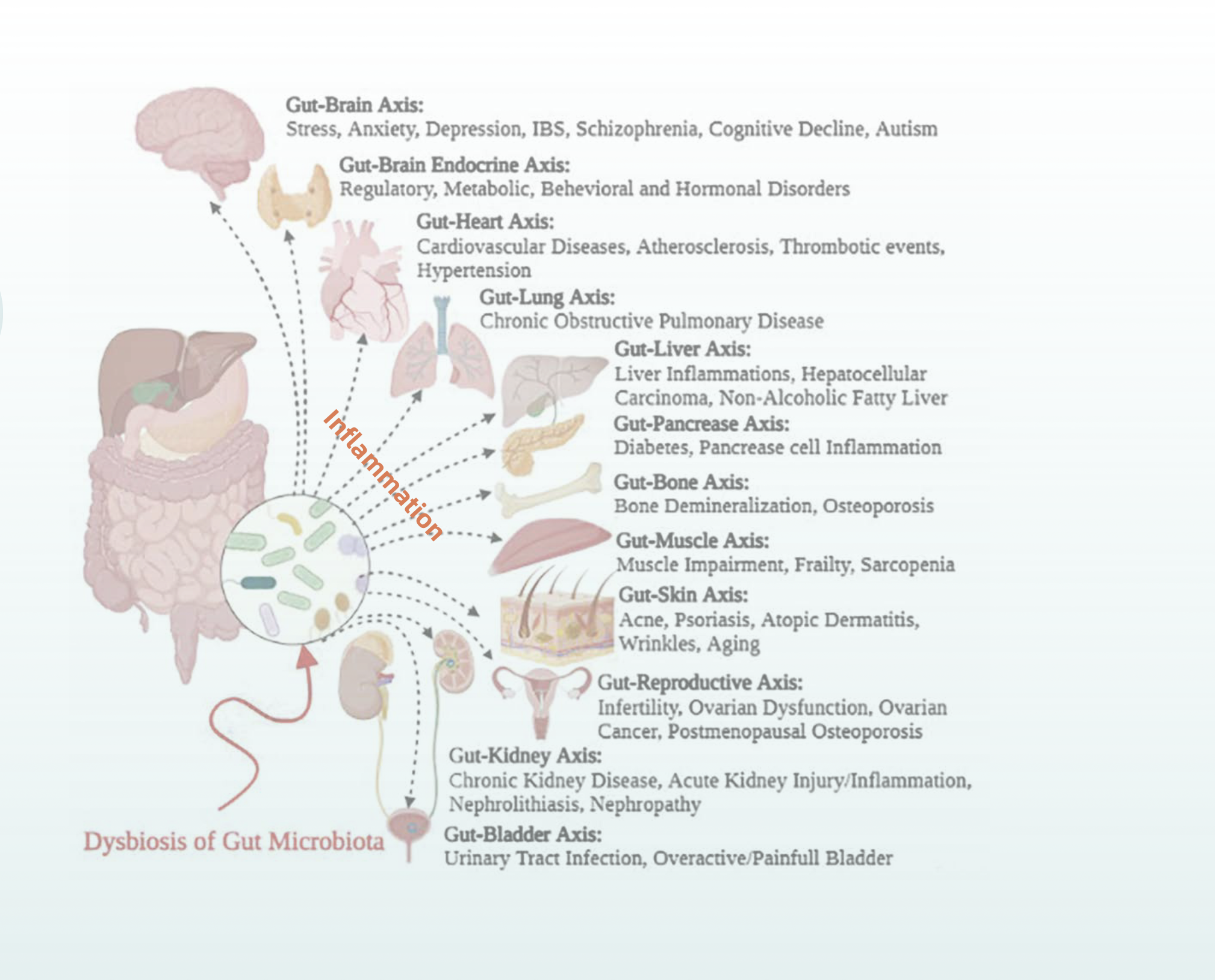Gastro Breath Analyzers - SIBO Test
Advanced Gastro Breath Analyzer
SIBO & Gut Biomarker Test Properties
Comprehensive Biomarker Detection: Measures H₂, CH₄, H₂S, NO, and CO in human breath.
SIBO Diagnosis: Detects bacterial overgrowth in the small intestine using glucose or lactulose test solutions.
Methane Analysis: Identifies methanogenic archaea linked to constipation and slow intestinal transit.
Hydrogen Sulfide Detection: Reveals overgrowth of sulfur-reducing bacteria, undetectable by standard H₂/CH₄ tests.
Inflammatory Marker: Measures nitric oxide (NO) as an indicator of gut inflammation or immune responses.
Non-Invasive: Simple, safe, and patient-friendly breath test.
Rapid Results: Provides insights into gut health within minutes.
Clinical Versatility: Suitable for diagnosing SIBO, gut dysbiosis, and other gastrointestinal disorders.
North American Consensus on Gastrointestinal Breath Testing
What is Gastro Breath Testing?
A safe, simple, and non-invasive tool to diagnose digestive issues like Small Intestinal Bacterial Overgrowth (SIBO), carbohydrate maldigestion, and methane-associated constipation.
Why Breath Testing?
It measures gases like hydrogen (H₂), methane (CH₄), and carbon dioxide (CO₂) produced in the gut, giving insights into bacterial activity and digestion.
Guidelines for Preparation:
Avoid antibiotics for 4 weeks before the test.
Refrain from high-fiber or fermentable foods a day before.
Fast for 8–12 hours and avoid smoking or vigorous exercise on the day of the test.
Standardized Test Protocols:
Drink specific sugars like glucose (75 g), lactulose (10 g), or fructose/lactose (25 g).
Provide breath samples every 15–30 minutes for up to 3 hours.
How Results are Interpreted:
Hydrogen Levels: A rise of ≥20 ppm within 90 minutes indicates SIBO.
Methane Levels: ≥10 ppm is considered methane-positive, often linked to constipation.
Carbohydrate Maldigestion: A hydrogen rise of ≥20 ppm signals intolerance to specific sugars like lactose or fructose.
When to Use Breath Testing?
To diagnose conditions like SIBO, IBS-like symptoms (bloating, gas, diarrhea, constipation), and sugar intolerances.
What Makes It Reliable?
It combines multiple gas measurements (H₂, CH₄, CO₂) for greater accuracy.
A standardized approach ensures consistency in diagnosis.
Discover the Importance of Gastrointestinal Breath Testing
Gastrointestinal breath testing is a non-invasive and highly effective diagnostic tool used to uncover the hidden causes of digestive discomfort. Whether you’re struggling with bloating, abdominal pain, constipation, or unexplained diarrhea, tests like the SIBO Breath Test, Hydrogen Breath Test, or Methane Breath Test can provide critical insights into your gut health.
Why Is Breath Testing Important?
Your digestive system is home to trillions of bacteria that play a vital role in breaking down food. However, when bacterial imbalances occur, it can lead to conditions like Small Intestinal Bacterial Overgrowth (SIBO), which often causes symptoms similar to irritable bowel syndrome (IBS). Through breath testing, we can measure gases like hydrogen (H₂) and methane (CH₄), which are byproducts of bacterial activity, to pinpoint the problem.
Breath testing is also essential for identifying carbohydrate malabsorption disorders, such as lactose or fructose intolerance. Tests like the Lactulose Breath Test, Glucose Breath Test, and Fructose Breath Test help determine how well your body digests and absorbs sugars, offering clarity on symptoms like bloating and gas.
Key Benefits of the Test:
Accurate Diagnosis: Detects SIBO and sugar intolerances with precision, helping clinicians create effective treatment plans.
Patient-Friendly: Non-invasive and simple – just a series of breath samples after consuming a sugar solution.
Comprehensive Insights: Simultaneously measures gases like hydrogen, methane, and carbon dioxide (CO₂) for a complete picture of gut health.
Who Should Consider Breath Testing?
If you experience persistent digestive symptoms, breath testing is a powerful first step in understanding your condition. It’s commonly recommended for:
SIBO Diagnosis: Using tests like the Hydrogen Breath Test and Lactulose Breath Test, a rise in hydrogen levels (≥20 ppm) signals bacterial overgrowth.
Constipation Investigation: The Methane Breath Test detects methane-producing bacteria often linked to slow gut transit.
Sugar Intolerance Testing: For conditions like lactose or fructose malabsorption, the Lactose Breath Test and Fructose Breath Test can help identify the issue.
Start Your Journey to Better Gut Health
With advancements in digestive breath testing, uncovering the root cause of your symptoms has never been easier. Whether you need a Small Intestinal Bacterial Overgrowth Test or want to explore carbohydrate malabsorption, this test provides the answers you need to take control of your health.
Talk to your healthcare provider today about how a SIBO Breath Test or Hydrogen Breath Test can help restore your digestive balance and improve your quality of life.







